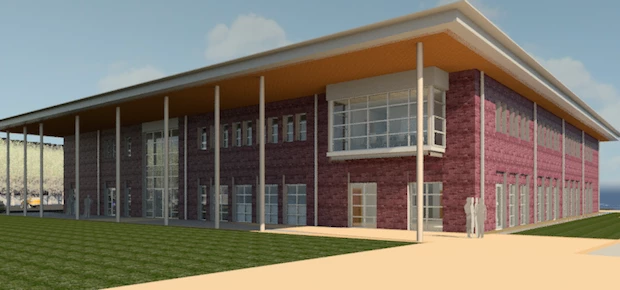
Partner Article
Graham Construction wins £8.5 million Liverpool Hope University project
Graham Construction (GRAHAM) has been awarded a contract to deliver a new £8.5 million Science building at Liverpool Hope University.
The project includes the demolition of the existing Health Sciences building and the construction of a new Health Sciences teaching unit.
The new two-storey building has been designed to be sympathetic with the existing architecture and surroundings and will have a gross internal floor area of approximately 2,900m².
It will feature specialist laboratory spaces dedicated to nutrition, genomics, cell biology and psychology, along with laboratories and space for sport and exercise science.
The surrounding external areas will also be upgraded with new hard and soft landscaping and the existing car park, adjacent to the Health Sciences building, is to be extended.
GRAHAM will work alongside the university and project partners Watson Batty architects, structural engineers Clancy Consulting and mechanical and electrical engineers Steven A Hunt & Associates.
GRAHAM operates throughout the UK and Ireland and is a specialist in the Higher Education sector, with clients including University of Manchester, University of Salford, Sheffield Hallam University and University of Edinburgh.
Regional director at GRAHAM, Gary Hughes said: “Liverpool Hope University is an innovative and forward-thinking institution and this new building will be a state-of-the-art centre for exciting scientific studies.
“The university recognised the quality, vision and ability of GRAHAM to deliver – to be playing a key part in this development is of great pride and we look forward to working in collaboration with the university and our project partners.
“This is a key win which further enhances our reputation and construction portfolio as we continue to grow across the North of England.”
Dean of science at Liverpool Hope University, Professor Atulya Nagar, said: “The new building will provide our students with the very best start to their science careers and give them the tools to pursue their own research.
“We also hope that it will attract even more world-leading research staff, allowing us to make an even greater impact on businesses, technology, public services and communities across the region, the UK and the world.”
This was posted in Bdaily's Members' News section by Sophia Taha .








 Raising the bar to boost North East growth
Raising the bar to boost North East growth
 Navigating the messy middle of business growth
Navigating the messy middle of business growth
 We must make it easier to hire young people
We must make it easier to hire young people
 Why community-based care is key to NHS' future
Why community-based care is key to NHS' future
 Culture, confidence and creativity in the North East
Culture, confidence and creativity in the North East
 Putting in the groundwork to boost skills
Putting in the groundwork to boost skills
 £100,000 milestone drives forward STEM work
£100,000 milestone drives forward STEM work
 Restoring confidence for the economic road ahead
Restoring confidence for the economic road ahead
 Ready to scale? Buy-and-build offers opportunity
Ready to scale? Buy-and-build offers opportunity
 When will our regional economy grow?
When will our regional economy grow?
 Creating a thriving North East construction sector
Creating a thriving North East construction sector
 Why investors are still backing the North East
Why investors are still backing the North East